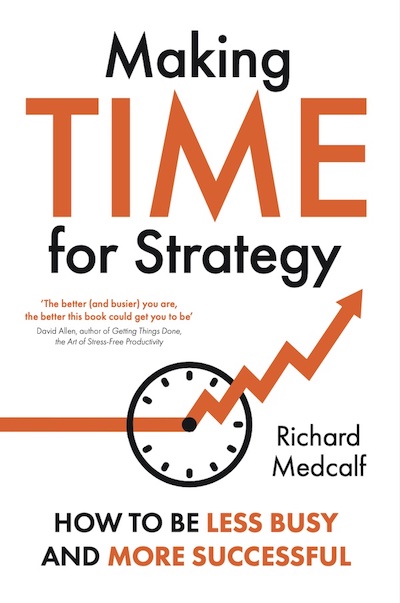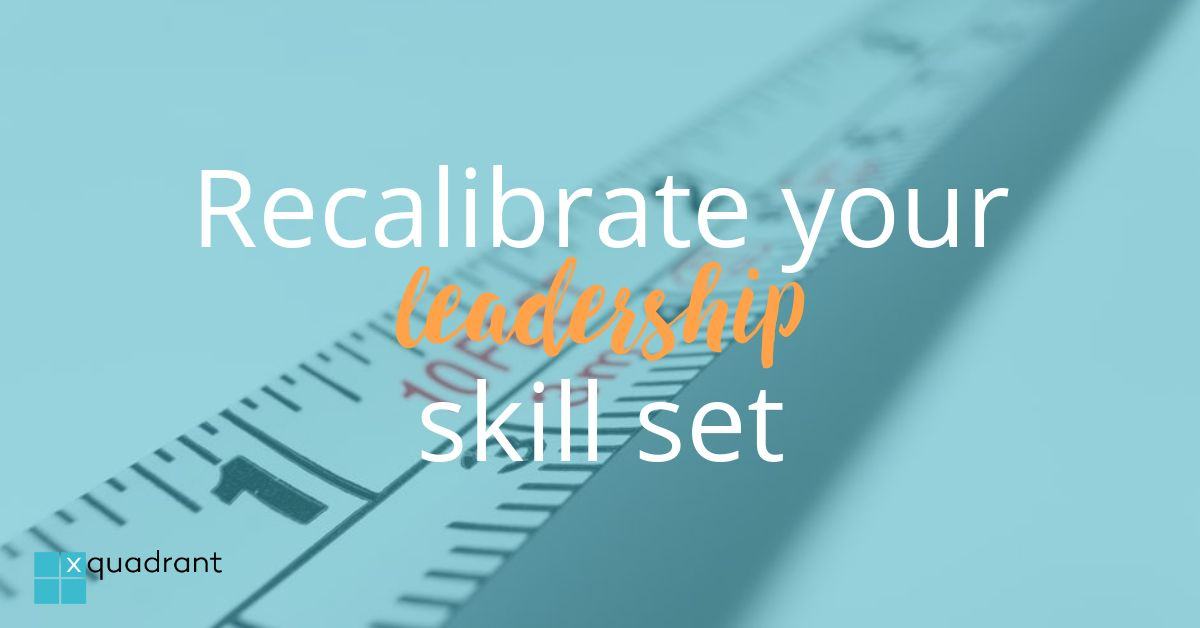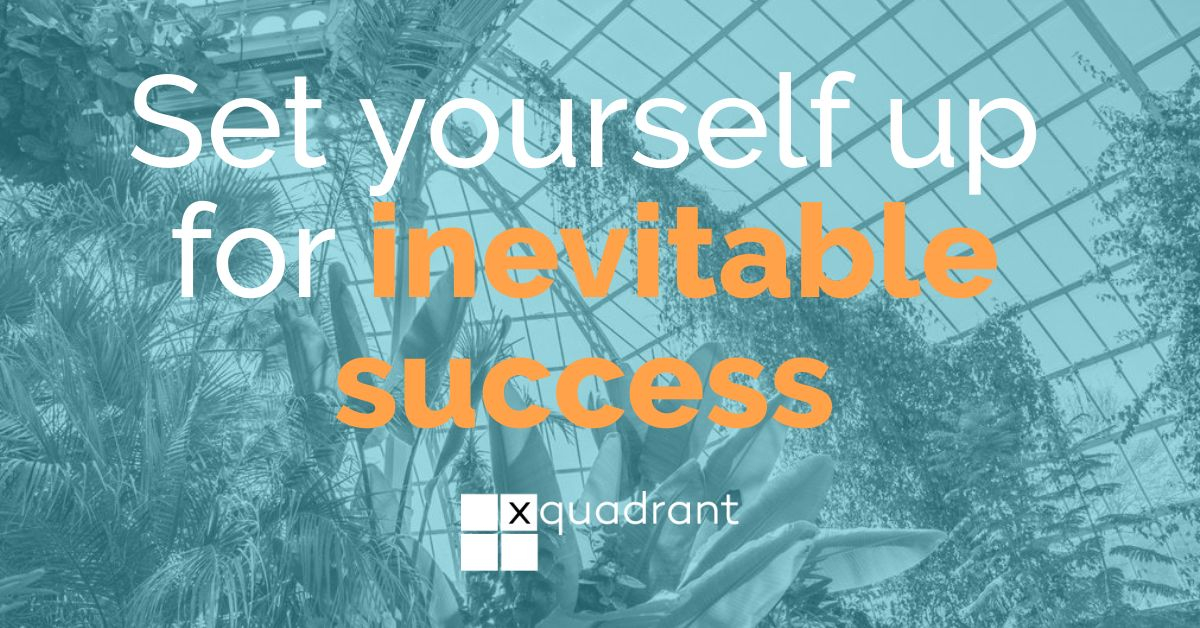Learn surprising executive effectiveness tips from David Allen, Nir Eyal, Marshall Goldsmith, Dan Miller, Peter Diamandis, Nicholas Thompson, Todd Herman and many more.
You might know the adage that “you’re the average of the people you spend the most time with”. It’s true: community shapes us and we absorb the conversations and ideas that are circulating around us. It’s one of the reasons that our high-end CEO mastermind, Rivendell, is so impactful. High achievers love being amongst people who will stretch them.
It’s my mission in life to help successful business leaders multiply their impact even further to be a huge force for good on this planet. This shift - from incremental to exponential - is why I wrote Making Time For Strategy, and it’s why I interview some of the world’s most successful leaders on The Impact Multiplier CEO podcast.
So as part of my ongoing commitment to surround myself and my clients with world-class thinking, I reached out to some of the world’s top thought leaders and asked them the following question:
What’s the most surprising tip you have for a senior executive who wants to be even more productive and effective?
You can the read the responses below. It’s a veritable treasure trove of wisdom from highly experienced leaders including several New York Times best selling authors, top 1% podcast hosts, the editor-in-chief of Entrepreneur magazine, the CEO of The Atlantic magazine.
Once you’ve read the article, why not pay it forward and share it with one highly successful leader you know who’s still open to growing? They’ll thank you for thinking of them.
Executive Effectiveness Tips: Theme #1:
Be future-minded
The idea that leaders need to focus on the future is hardly surprising. But here are three insights around how to do that at a more profound level than setting goals and making plans.
Back out of the future
Simon Mainwaring is a brand futurist, global keynote speaker, New York Times bestselling author, highly regarded podcaster, and prolific Forbes columnist.
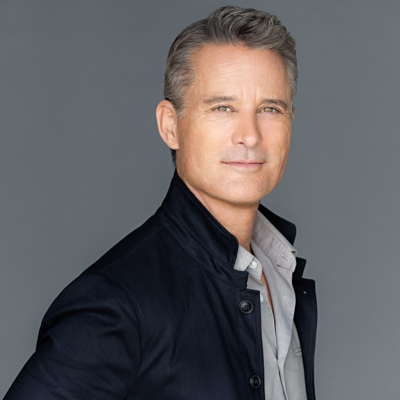
The most surprising tip I would share with senior executives is that they must back out of the future, rather than build on the past. The future has less to do with the past than ever given the compounding challenges we face, the shrinking half-life of technology, and the unpredictability of real-time events. With that in mind, if a senior executive wants to be more productive and effective, they must look 3 or 5 or even 10 years out, and establish their best estimate of what their world, industry, and challenges will look like. Then they must reverse engineer their goals and milestones in that context while being fully aware that those projections may arrive far sooner than they imagined.
Become an identity-shifting maestro
Todd Herman is an award-winning author, performance advisor to athletes, leaders and public figures, and founder of upcoach. He’s the recipient of the Inc. 500 fastest growing company award.

Architect your future mindset
Peter Diamandis was recently named by Fortune as one of the “World’s 50 Greatest Leaders.” He is the founder and executive chairman of the XPRIZE Foundation and the executive founder of Singularity University.

Here’s a question for you: What do you think made Elon Musk, Jeff Bezos, Steve Jobs, Anousheh Ansari, or Martine Rothblatt so successful? Was it their technology, their wealth or was it their Mindset? I think almost everyone would agree that the right mindset is the most critical asset for ANY entrepreneur or leader. Take away all of their wealth, their technology and their relationships, but leave them their mindset and chances are they would succeed again.
But WHY is Mindset so important, especially during this era of global and rapid exponential change? Because your mindsets are the filter through which you see the world, they are the operating system of your brain… They determine how you spend your time, who you spend your time with, the decisions you make, where you invest your resources and your vision of what is even possible for you in the future. Mindset is everything! The problem is that few of us ever pause to consider how our mindsets influence our lives, what mindsets we have, where we got them, or even what mindsets we want to develop!”
Your success as a leader depends on you making time for strategic activity.
Richard’s book, Making Time For Strategy, is a comprehensive guide for leaders who want to shift from incremental progress to breakthrough results.
Find out more and read the first two chapters.
Executive Effectiveness Tips: Theme #2:
Improve your personal system
Many leaders settle into a personal productivity routine - but few leaders continually question and refine that system. Several experts honed in on this as the 'lowest hanging fruit' open to many executives.
Stop using your mind as your office
David Allen is the author of the international best-selling Getting Things Done: the Art of Stress-Free Productivity.
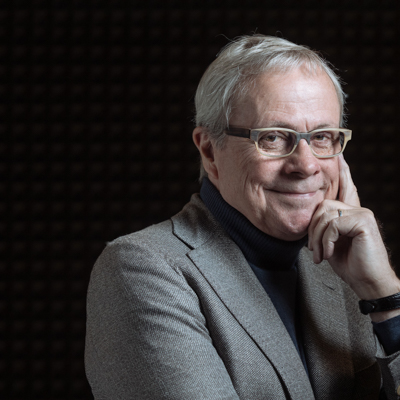
Stop using your mind as your office. It hasn’t evolved to do that well. Externalise all your thinking and potentially relevant data; then use your mind to reflect on all that and make intuitive and strategic choices.
Implement 'GTD'
Taylor Pearson is an Investor and Author.

Read and implement David Allen's Getting Things Done. All the general advice you hear about managing time and people skills and all that is very important but in my experience a lot of executives lack intermediate project management skills. This is very easy to learn (takes a few months) and makes a large impact in their output in my experience.
Start your day with one ‘mover’
Deniero Bartolini is a digital entrepreneur, business consultant, and host of The Remote CEO Show.

I recommend all my clients work on one high-value task (also called "mover") before they start their day. You probably heard a thousand times the following piece of advice, "after you're done working, stay in the office to make one more call." But after 5 pm, your mind is tired and cluttered, so you'll find it incredibly hard to focus and create great work. Instead, show up a bit early and use that time to work on those NUI (Non-Urgent Important) tasks. Have you been trying to take a course or improve an internal process to enhance your company's productivity? These types of tasks require your full attention, so you'll find it much easier to work on them in the morning when you are alone and in the zone. If you want to improve your productivity and mindset, this little tweak to your schedule will go a very long way.
Hire the best EA
Gary Cohen is Managing Director and Executive Coach at CO2Partners, Gary is famous for asking questions; he wrote the book on it!
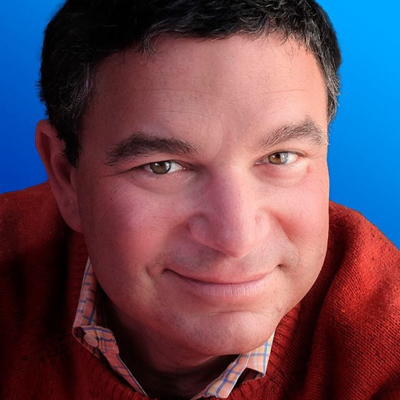
I coach my clients to get the best Executive Assistant they can afford and then hire our coach Mackenzie Doheny who specialises in working with EAs, to coach their EA to be even more effective. There is no better way to increase your effectiveness.
Executive Effectiveness Tips: Theme #3:
Engage stakeholders more intentionally
Often when we think of our effectiveness, we start navel-gazing. But four thought leaders reverse this viewpoint and encourage us to double-down on our different stakeholder constituencies and what we can do for them.
Meet customers at least twice a week
Jeffrey Gitomer is the author of 17 books including: The Little Gold Book of YES Attitude, and The Little Green Book of Getting Your Way.
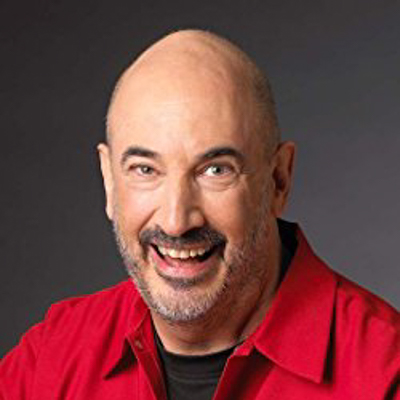
Senior executives tend to have lots of meetings with their direct reports. Most of these meetings end in frustration and misunderstanding, because the leader is speaking from his opinion, not necessarily from corporate and market concerns, or employee concerns.
Here’s what to do: Senior executives should meet with customers a minimum of twice a week. Gather real world feedback from the people that give you money. Then meet with lower level employees as a small group, and ask for their needs and respond to their concerns. When you have this information, then, and only then can senior executives meet with their direct reports and give insightful information that’s both actionable and profitable.
Filter by what brings value to stakeholders
Mike Coffey is an HR entrepreneur and private investigator helping companies make well-informed decisions about the people they involve in their business.

Focus less on being “productive” and more on being “effective.” In other words, avoid all the so-called hacks and arbitrary metrics (zero inbox, for instance) and focus on the efforts that bring the most value to the stakeholders in your life, both personal and professional. For instance, I sort my list of my commitments (never tasks) by stakeholder (e.g., my wife, my sons, my employees, my customers, myself, etc.). Some of these commitments will be supportive of Imperative’s already-defined company goals while others will simply be “this is a way to bring value to this person.” As I plan my week, I identify the activities supporting those commitments that will most bring value to each of those stakeholders in the coming week and schedule those.
Obsess about your customers
David Meerman Scott is a business growth strategist and WSJ bestselling author of 13 books including Fanocracy.
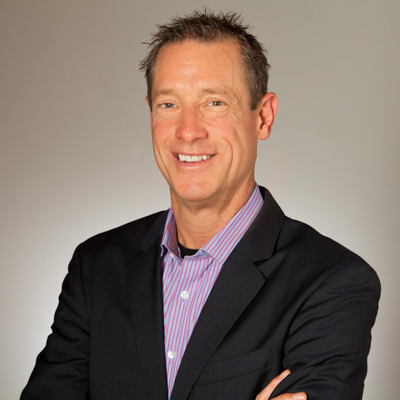
Nobody cares about your products and services (except you). What people do care about are themselves and how you can solve their problems. You will be way more effective if you focus on buyers and their needs than obsess about your company’s offerings.
Move from transactions to partnerships
Dr. Jürgen Strauss is a transformational marketing strategist, podcaster, speaker, the chief innovator and founder of Innovabiz.
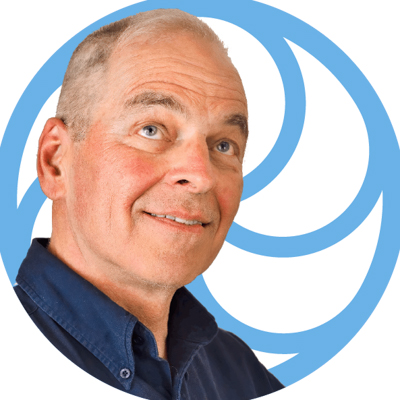
The core of great leadership is really caring about the people you are serving. This means really caring for your employees/reports - listen in a way that leads to real, authentic conversations with them. A leader needs to have a vision and be able to communicate that vision to their staff in a way that inspires them every single day! Likewise, be really engaged with your customers - high quality engagements. Aim for partnership relationships rather than vendor-customer transactional relationships. The only thing people will remember about your relationship, about your leadership, is how you made them feel. And as a bonus - when barriers arise or you get stuck, take time away, to reset and reflect - come back to regular activities fully re-charged, re-energized and joyful.
Executive Effectiveness Tips: Theme #4:
Lead, don’t coerce
Leaders face the continual temptation to consolidate and centralise power; but effectiveness is more likely to come when you decentralise and invite others instead.
Design at the team level
Robert C Pozen was formerly president of Fidelity Investments and executive chair of MFS Investment Management. He now teaches at MIT Sloan.
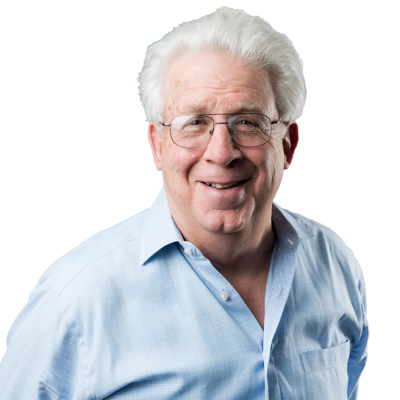
Senior executives often establish rules on remote work for the whole organisation. But organisations are composed of teams with very different functions — financial, IT, sales and customer service. So the team should be the key unit for deciding on the design of the hybrid workplace of the future.
Extend compelling invitations
David Zinger is an international writer and educator who specialises in engagement, experience, moments, and mindfulness.
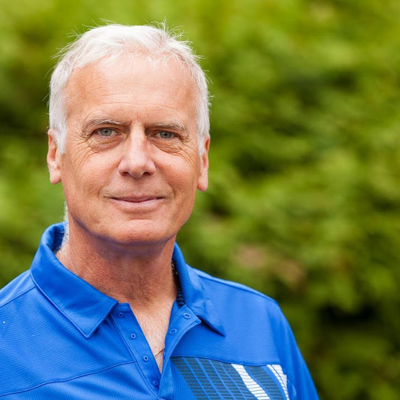
Be invitational. People do not resist change. They resist coercion. Never be an agent of coercion with the people you lead. Instead, extend authentic and compelling invitations. People who decline sincere invitations will experience natural consequences. Think about yourself, would you rather be told (coerced) into doing something or invited to engage?
Executive Effectiveness Tips: Theme #5:
Create feedback loops
Start thinking of effectiveness as a system. Like every system, it will only get better when there's a feedback loop enabling new perspectives and insights to shift things.
Don't trust your own views
Jeremie Kubicek is an author and speaker, and creates content used by some of the largest companies around the globe. His new book, The Peace Index, releases in the Fall of 2022.
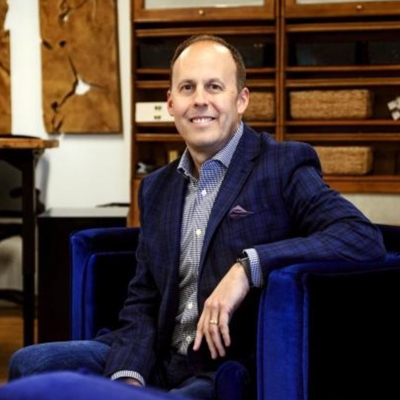
If an executive is under stress then I encourage them not to trust their own views of how situations are going because they may become irrational or generalise their frustrations about a person or group of people. Their “problem solving” tends to be overactive and too intense which often causes poorer productivity and less effectiveness because the person on the other side feels the heat and judgement, which causes them to put up their walls of self-preservation.
Partner with someone from Generation Z
Penelope Trunk was named by Inc magazine as “the world’s most influential career coach” and she was on Tech Crunch’s list of top 50 most influential women in tech.
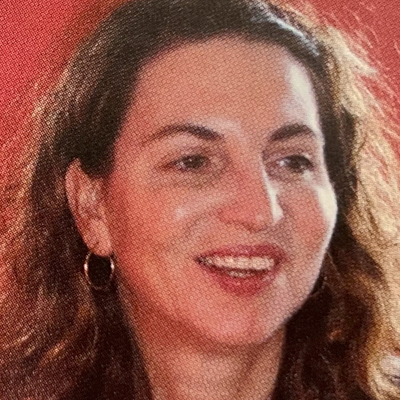
"Senior executive" means either ‘idea person’ or ‘irrelevant’. The difference is in who you interact with on a daily basis. The best leaders take people somewhere new and exciting, so identify the current taxonomy of your expertise and partner with someone from Generation Z so you can make yourself more relevant to today's issues.
Ensure frontline staff are getting what they need from managers
Matt Tenney is an author and consultant who helps organizations apply a scalable, repeatable system for building a sustainable, high-performance culture that attracts and retains top talent.
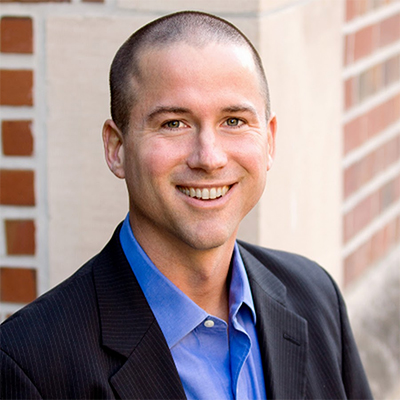
Tied with a great strategy, the best way to create leverage and increase productivity is to inspire increased engagement in team members. To do this effectively and sustainably, the traditional approach of delegating engagement and retention to HR needs to be eliminated. Although HR is an essential partner in the process, at least 70% of engagement is driven by direct supervisors. So leaders need to apply an always-on approach of getting regular feedback from team members on how well managers are meeting the needs people have for thriving at work, and helping managers quickly respond to feedback with new habits for meeting the needs of team members.
Your success as a leader depends on you making time for strategic activity.
Richard’s book, Making Time For Strategy, is a comprehensive guide for leaders who want to shift from incremental progress to breakthrough results.
Find out more and read the first two chapters.
Executive Effectiveness Tips: Theme #6:
Become dispensable
The counterintuitive truth in this theme is simply that the most dispensable we become to the organisation, the more valuable we become as a leader.
Get hit by a bus!
Jim Rembach shares wisdom from the world's brightest minds in B2B high-ticket sales and revenue generation.
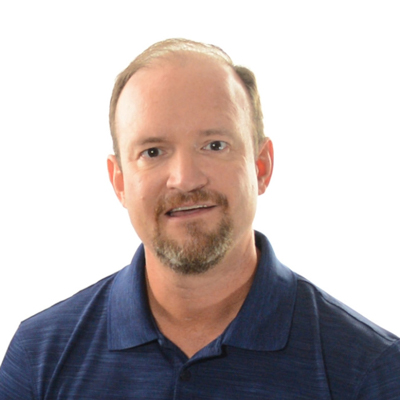
Get hit by a bus. If your business survives while you recover, you're doing the right things. If your business fails, the size of the bus doesn't matter.
Make yourself dispensable
Julie Winkle Giulioni helps organisations tap their only sustainable competitive advantage, talent, as a speaker, consultant and author of the international bestseller, Help Them Grow or Watch Them Go and Promotions Are So Yesterday.

Make yourself dispensable. Being dispensable means that you’ve invested in developing your team and that, as a result, you're surrounded with top talent that’s ready, willing, and able to step up as necessary. It means that you’ve created effective systems and processes that can stand on their own. It means that you’ve cultivated a sustainable culture rather than a personality cult. Becoming dispensable is the key to greater productivity and effectiveness - and to being indispensable to your organisation.
Get out of their way
Mike Figliuolo is the founder and managing director of thoughtLEADERS, LLC and the author of three books. He’s also one of the most-viewed authors on LinkedIn Learning.
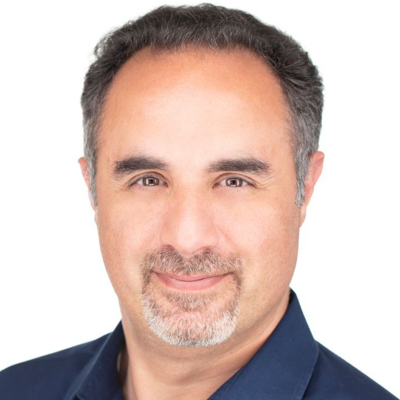
Get out of their way. Your job is to hire the right talent, give them direction and resources, then get out of their way. If you want to be more effective and productive, spend your time developing them, clearing obstacles they face, and supporting their work. They know their business better than you do. All you’re doing by getting into the details of their work is taking up valuable time they could be spending getting the work done instead of meeting with you and preparing reports to explain it to you. You are an enabler of their success. Act like it. You’ll be shocked at how much more productive they are when you’re not in their way as well as pleasantly surprised with how much more time you have for your own work.
Delegate to the point of discomfort
John Spence was named by the American Management Association as one of America’s Top 50 Leaders to Watch along with Sergey Brin and Larry Page of Google and Jeff Bezos of Amazon.
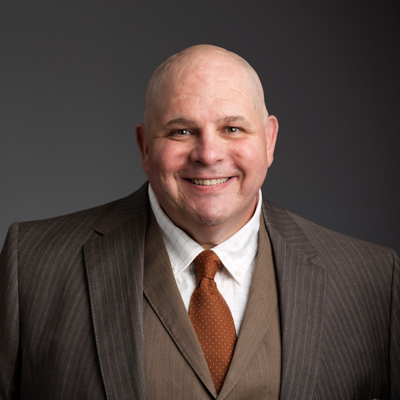
Learn what to say no to. Do only the things that only you can do. Delegate to the point of discomfort and beyond.
Executive Effectiveness Tips: Theme #7:
Create rest & space
What if executive effectiveness comes from what we don't do, and from our patterns of rest and downtime? This is a major theme, majored on by six respondents.
Run to the office!
Nicholas Thompson is the CEO of The Atlantic and the former editor-in-chief of WIRED.
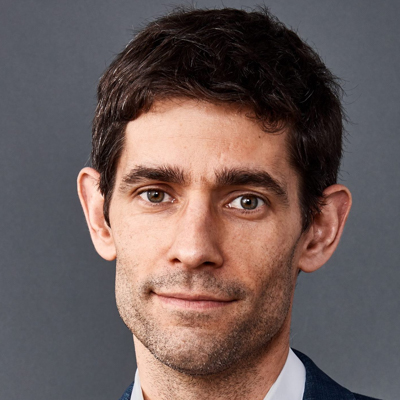
My most surprising productivity hack is running to and from the office. I've done this for about twenty years now, and it's a way to incorporate my fitness routine into my work. It's not something that can work for everyone---you need a shower near the office and you need to live reasonably nearby---but the same principles hold if you bike or walk to work. You're outside, you're not reading and responding. It creates a mental break at the start and the end of the day. And then, when you're at your desk, you're ready to go.
Perhaps you need a shower...
Nicole Jansen has coached and trained thousands of leaders over the last 30 years, helping them create extraordinary impact in their businesses, relationships, and communities.
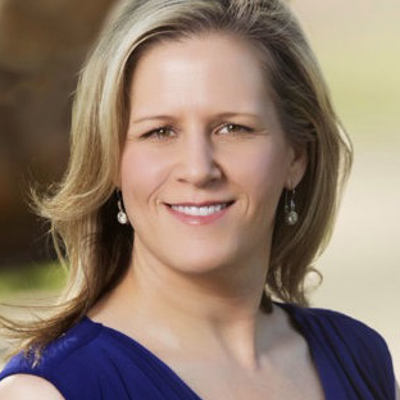
I don’t know how surprising it is, yet I know a lot of senior execs who find it hard to take time to truly REST. Most consider rest to mean replacing work with play. That is good to do, however if you really want to expand your capacity to ideate, produce and be most effective, you must regularly be still and tune into a higher consciousness. This increases your ability to BE PRESENT to what’s going on, what’s most important, and what is the best path forward. Besides, some of the most brilliant ideas and solutions come as a still small whisper. That’s why we discover them in the shower, out in nature, or just after a good nap. Bottom line, REST and make room for your genius to shine through!
Breaks are not your enemy
Erik Fisher is the producer and host of the productivity Podcast, Beyond The To-Do List for the past 10 years.

Breaks are not your enemy. Research shows taking breaks from work makes you more focused, creative, and productive. Things that count as breaks are physical activities like walking, changing your scenery, especially getting outdoors. If your work involves human interaction try taking a break from people! If your position is more isolating, make a quick FaceTime call, walk and talk with a friend or colleague or phone call. Hydration and healthy snack breaks also refresh the body, mind and spirit. The longer your work without a break the lower the quality of your work.
Create a ‘vacation culture’
Michael D. Levitt is the founder & Chief Burnout Officer of The Breakfast Leadership Network, a San Diego and Toronto-based burnout media firm, and hosts the Breakfast Leadership Show.
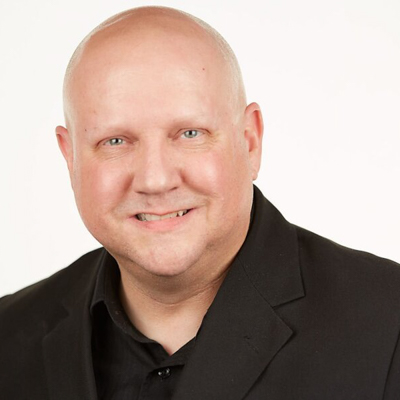
Executives need to use their vacation time and encourage their teams to do the same. Even in a post-pandemic world, most people are reluctant to take vacation time, because they associate vacations and travelling somewhere. Staycations are helpful if proper boundaries around work are used. Executives need to schedule days off, and not work!
Learn to use the “off” switch
Vladimir Gendelman is Founder and CEO of Company Folders, Inc., a boutique print shop specialising in custom presentation folders and 3-ring binders.
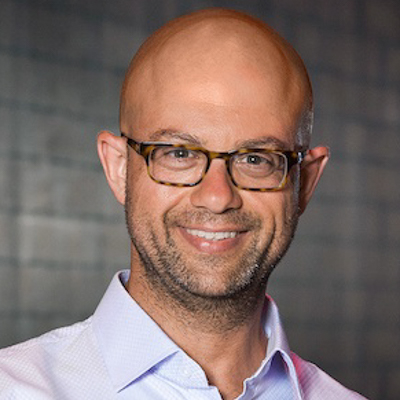
Learn to use the “off” switch. Whether it’s on weekends, outside of business hours, or just on your lunch break, learn to disconnect from your habitual working self physically, emotionally, and cognitively. I used to be plugged into work all throughout my waking life. When I began toggling my “off” switch to enjoy more time for myself, family, and friends, I found that I had improved energy levels, increased concentration, better moods, and enhanced sleep patterns. All this improved my work performance drastically and I became much more efficient in the office.
Do less, not more
Gresham W. Harkless Jr. is an entrepreneur and blogger. He is the founder and content creator at CBNation and is the founder and digital marketing specialist behind Blue 16 Media.
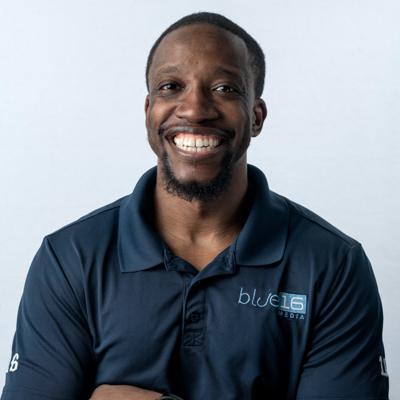
On the daily podcast I host, the I AM CEO Podcast. I always ask CEOs, entrepreneurs, and business owners for CEO Hacks which are the things they focus on that make them more effective and efficient. One of the most surprising ones that sounds counterintuitive is that being more productive and effective is not about doing more. It's about doing less. Scheduling time away and taking breaks allows you to be more effective in the limited time you have. It also is a good reminder to focus on the most important things.
Develop a peaceful mind
Dr Martyn Newman, PhD., DPsych. Clinical and Corporate Psychologist and Executive Chairman, of RocheMartin, a global expert in delivering Emotional Intelligence and Mindfulness programs to senior leaders and Fortune 500 companies.
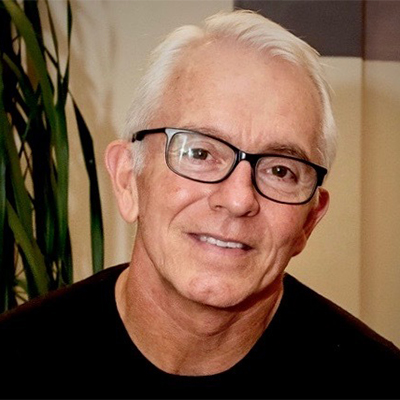
The most important skill you need in the second half of your career/life is the capacity to develop a peaceful mind. Background anxiety and manic energy fog the mind clouding judgement and create a constant state of fatigue. A peaceful mind creates an observation deck that allows you to develop your emotional intelligence and focus on what really matters.
Executive Effectiveness Tips: Theme #8:
Actively control your time and attention
Our time and attention is our most precious resource, and course it's why I wrote Making Time For Strategy. But often we're so focused on what's being put in front of us that we fail to step back and take control of where we put our attention.
Batch your time
Dan Miller is the author of the New York Times best-selling 48 Days To The Work You Love, No More Dreaded Mondays, Wisdom meets Passion and his latest release, An Understanding Heart.
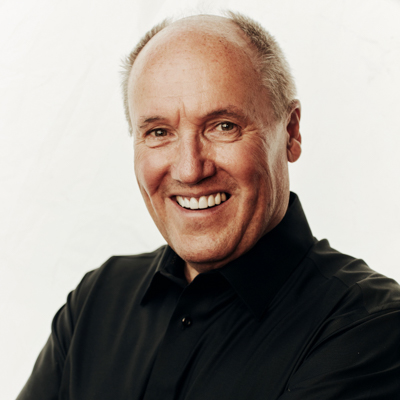
My productivity increased dramatically when I learned the power of working in focused, uninterrupted blocks of time. I batch all meetings on Mondays, all client and team interaction on Tuesdays, available for interviews on Wednesdays, and then devote Thursdays and Fridays to deep work - uninterrupted by any distractions. I end the week feeling energised and rested with all the important work completed.
Don’t let your inbox drive your day
Andrea “Andi” Simon, Ph.D. is CEO of Simon Associates Management Consultants and a corporate anthropologist, culture change expert, and an explorer at heart.

From our work as consultants and executive coaches, as well as our years as an executive in financial services and healthcare organisations, we watch people fail to focus. When work was in the office, the casual conversations and comfortable coffee break offered people pleasure. Now that work is often remote, executives watch their in-box drive their day rather than take charge of it. Our tip is to capture the energy that comes from clarity of purpose and focus. Write your list of things to be done, including time to read, self-care, or grow; prioritise them and then get going.
Take control of your calendar
Gary DePaul is the author of Nine Practices of 21st Century Leadership and hosts the Unlabeled Leadership Podcast.
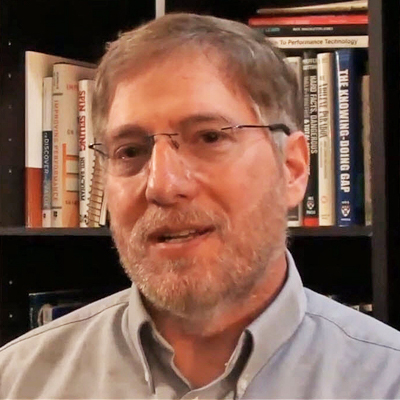
Executives who take control of their calendar scheduling can enhance their productivity. That means reserving non-meeting time daily to recharge, reflect, and take care of your mental health. Executives who constantly are on the go tend to make mistakes and faulty decisions.
Plan your attention like you plan your time
Nir Eyal writes, consults, and teaches about the intersection of psychology, technology, and business, and is the author of two bestselling books, including Indistractable: How to Control Your Attention and Choose Your Life.
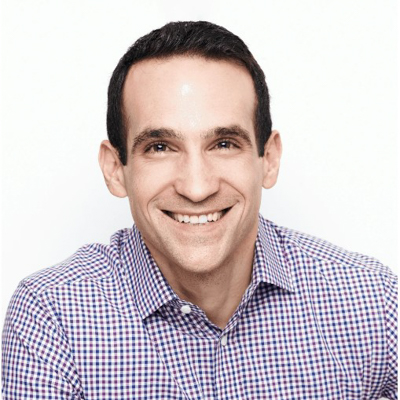
The most important, though not the most surprising, insight I have for managers is that you have to plan your attention just as thoughtfully as you plan your time and fiscal spend. Becoming Indistractable and building an Indistractable workplace will be the most important skill of the century.
Your success as a leader depends on you making time for strategic activity.
Richard’s book, Making Time For Strategy, is a comprehensive guide for leaders who want to shift from incremental progress to breakthrough results.
Find out more and read the first two chapters.
Executive Effectiveness Tips: Theme #9:
Make time for reflection
Following on from the previous theme is to actually build in thinking time into our daily and weekly routines. Indeed, Making Time For Strategy addresses this exact theme and offers a comprehensive blueprint for making this a reality.
You don't need a tip or a trick
Richard Medcalf is Xquadrant's founder and the author of Making Time For Strategy: How to be less busy and more successful. He's a trusted advisor to some of the top entrepreneurs and CEOs on the planet.

You already know you need to free yourself up from low-level tasks and focus your attention on what's going to move the needle. So what's stopping you? You may think it's because you're particularly busy right now and you don't have a choice, or you're looking for a productivity tip or trick that can free you up.
But the truth is that you have to address four key factors if you are to operate at whole new level: tactics, influence, mindset and environment. In other words, freeing yourself up for strategic activity isn't so much about productivity tips, but a leadership challenge and a personal development challenge.
Simultaneously cultivate solitude and noise
Perry Carpenter is an author, speaker, podcaster currently serving as Chief Evangelist and Strategy Officer for KnowBe4, the world's most popular security awareness and simulated phishing platform.
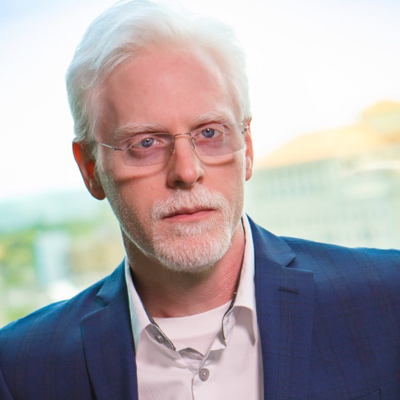
We should simultaneously cultivate solitude and noise. We need to find solitude/silence so that our minds can present new ideas that aren't quickly drowned out by noise. We need time to contemplate and turn ideas over in our minds... we need time, space, and solitude for serendipity. But, we also need to cultivate noise. We need to put ourselves in situations where we are exposing our minds to new ideas, new forms of expression, and new information so that we can process all of this, combine it with the information, experiences, and wisdom we already have, and surface new insights. This is another path to serendipity. I think you need BOTH silence and noise to continually discover the new insights you need to continue to be a thought leader.
Build in time for thinking
Jo Dodds is an Employee Engagement Consultant and Productivity Specialist.

Build in time for thinking, reflection and doing nothing and allow your people to do the same. How many times have we solved an issue whilst driving or in the shower! More times that we can probably remember and yet there is a tendency to fully schedule our days with tasks and meetings and ‘doing’. There may not be the opportunity in your working day for driving or taking a shower but a mindful coffee or a walk will pay dividends.
Schedule a ‘Doubtful 30 minutes’
Jean Gomes is a New York Times bestselling author of The Way We’re Working and forthcoming, Leading in a Non-Linear World.

Schedule a Doubtful 30 minutes at the end of each week. This involves looking back over the week and scanning for moments, decisions or interactions where you feel doubtful that you made the right decision, understood correctly, listened intently enough or made others feel heard and valued. Setting time aside to think this way has helped numerous leaders I work with to rapidly reverse incomplete or bad decisions, rectify moments where value was lost in relationships and regain a sense of perspective and control over their work.
Start journaling
Mike Vardy – also known as "The Productivityist" – is a highly-acclaimed productivity strategist and one of the top thought leaders in the personal productivity and time management space.

If you want to be more productive and effective, you should journal. Take five minutes at whatever time of day works best for you and that first thing, last thing, whenever – and reflect. Take stock. Keeping a journal consistently allows for faster course correction when things are going the way you want and showcases patterns that are either good or not so good. you can learn a lot from the process, so take time to do it. It’ll help you move forward in the right direction.
Executive Effectiveness Tips: Theme #10:
Experiment a little...
If we see executive effectiveness as a lifelong journey, one key message has to be to experiment. What worked for you in the past might not work for you now and so get curious and try things out.
Try it, and pivot
Ian Truscott is not a rockstar, but an experienced CMO, trusted advisor and host of the Rockstar CMO F'in' Marketing Podcast.

I’ve chatted with over 100 senior marketing executives, authors, coaches and entrepreneurs for the podcast. The most surprising thing I’ve learned is the varied road they have often taken to finding their current success. They have found where they are effective and productive by trying and maybe failing at things they thought they wanted to be successful at. So maybe, the key to effectiveness and productivity is to be in the right place for you. Try something, and if it doesn’t work, don’t focus on the sunk cost of the current thing; pivot to a place where your strengths fit and being successful is not such a struggle.
Ask other execs what works for them
Jason Feifer is editor in chief of Entrepreneur magazine, author of the book Build For Tomorrow, a startup advisor, and host of two podcasts

Ask other senior execs what works for them! I once interviewed Wharton professor Katy Milkman, who researches how to change behaviours in positive ways, and she said that we often overlook the importance of copying other people's strategies. It's due to what she calls the "false consensus effect" — basically, we assume that other people think the same way we do, so we don't consider what we could learn from them. That's a mistake, she said. When we ask others what works for them, and then copy their methods, we increase our own chances of success.
Executive Effectiveness Tips: Theme #11:
…and enjoy the ride!
Finally, relax. We can be so focused on achieving our goals that we be our own worst enemy and simply forget to be happy along the way.
Be happy - and show it
Marshall Goldsmith is a top executive coach and author who helps successful people achieve positive, lasting change in behaviour; for themselves, their people, and their teams.
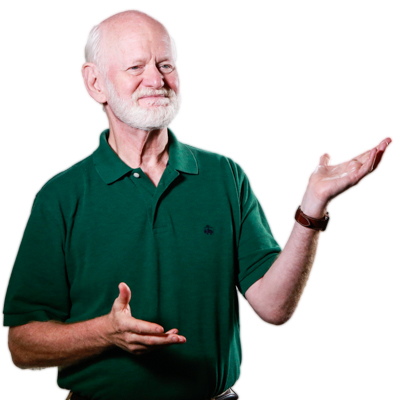
I recently asked three CEOs, “On an average day, how would you score on the answer to this question, ‘Did I do my best to be happy?’” All three replied, “It never dawned on me to try to be happy, I was just too busy.” As a leader, make sure that you enjoy what you are doing and communicate that enjoyment to others. If you don’t love leading your organisation, why would you expect them to love working there?
Always be kind to yourself
Quint Studer is the author of The Calling: Why Healthcare Is So Special and the founder of Healthcare Plus Solutions Group.
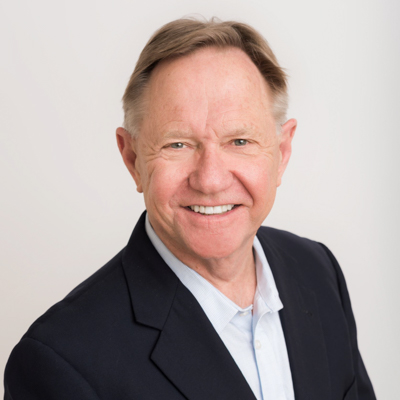
Always be kind to yourself. When new leaders ask me for my number one piece of advice, that’s what I share with them. It’s easy to filter out the positives and focus on the negatives. Beating ourselves up tears down our confidence and keeps us focused on problems instead of solutions. When we start noticing what went right instead of what went wrong—and teach those around us to do so—everything shifts. We become more effective leaders and create a positive work environment where people are happier and more productive.
What to do next
Eleven themes, forty tips. That's a lot of information, and this is the Web after all - meaning 90% of people will skim to this point and then surf off somewhere else. But be one of the 10% who grow instead.
Transformation only comes when education turns into execution. So here's how you can execute today on what you've just seen:
Take just one effectiveness tip from the list, and schedule 10 minutes or so to actually implement it. Once you're done, come back and try another idea.
And if you're already a world-class leader and are serious about elevating your impact to a whole new level, then perhaps we need to have a conversation.
Your success as a leader depends on you making time for strategic activity.
Richard’s book, Making Time For Strategy, is a comprehensive guide for leaders who want to shift from incremental progress to breakthrough results.
Find out more and read the first two chapters.

